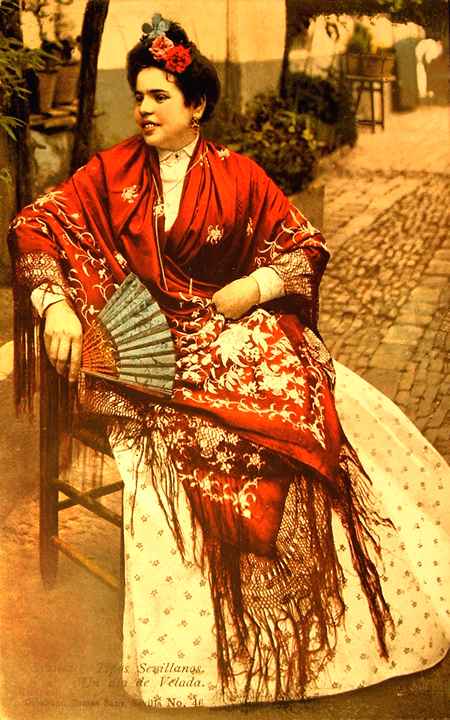
| Языки :: Испанский |
| Аудио |
 |
|
|
193 |
Español |
Spanish |
|
Lección Sesenta y siete (67) |
||
| De buen humor | In a [of] good humour. | |
| 1 |
Cumplimiento. — ¿No conoce usted a mi hermano Juan? No nos parecemos en nada. |
A compliment. — You don't know [at] my brother John? We resemble each-other in nothing. |
| 2 |
Tengo ganas (1) de conocerlo. Debe de ser muy simpático. |
I have a mind to know him. He must be very attractive. |
| 3 |
Mala memoria. — Ya no me acuerdo por qué hice este nudo en el pañuelo... |
A bad memory. — I don't remember why I made a knot on my [in the] handkerchief. |
| 4 | Será para acordarse de echarlo a la ropa sucia. | It will be to remind you to throw it with the dirty linen. |
| 5 |
La diferencia. — Bebe como un pez. — Sí, pero no lo que beben los peces. |
The difference. — He drinks like a fish. — Yes, but not what fishes drink. |
| 6 |
Celos. — La novia : ¡Me dedicaré al cine (2) y tomaré un seudónimo! |
Jealousy. — The fiancée : I shall [devote myself to the cinema] act for the films, and take a pseudonym |
| 7 | El novio celoso : ¡Pues os (3) mataré a los dos! | The jealous fiancé : Then I shall kill you [at] both! |
| 8 |
Entre padre e hijo. — No me gusta que vuelvas a casa tan tarde; |
Between father and son. — I don't like you to [that you] come back home so late; |
| 9 | cuando tenia tu edad, mi padre me obligaba a acostarme a las diez. | when I was [had] your age, my father obliged me to go to bed at 10. |
| 10 |
¡Qué raro debía de ser tu padre, papá! — ¡Mejor que el tuyo, descarado! (4) |
How funny he must have been, your father, dad! — Better than yours, insolent (boy) ! |
| EJERCICIOS | EXERCISE : | |
| 1 | Acabo de escribir una carta, y voy a echarla al correo; ¿viene usted conmigo? | I have just written [finish writing] a letter, and I'm going to drop [cast] it in the mail [box]; do you come with me? |
| 2 |
Bueno, vamos... pero primero escriba usted la dirección, pues veo que el sobre está en blanco. |
Well, let's go. — But first write the address for I see that the envelope is not written on. |
| 3 |
¡Caracoles! ¡Qué distraído estoy! Un segundo, haga el favor; |
By Jove [Snails!]! How absent-minded I am! One second please; |
| 4 | escribo a un antiguo compañero de colegio, | I write to an old school-fellow, |
| 5 | que ahora está en Zaragoza, donde se dedica a negocios de seguros. | who is now in Saragossa, where he's concerned in insurance business. |
| 6 | ¿Se llama Carlos Ruiz, por casualidad? | Is he called Ch. R. by (any) chance? |
| 7 | Precisamente; ¿le conoce usted? | Precisely; you know him? |
| 8 |
Sí, le conocí en Zaragoza, hace unos dos años, pero no le he vuelto a ver desde entonces. |
Yes, I made his acquaintance [knew him] in Saragossa, some two years
ago, but I have not seen him again [come back to see] since then. |
| 9 | ¡ Qué pequeño es el mundo! | How small the world is! |
| NOTES. | |
| 1 |
Gana, will, mind (to do something) is often used in the
plural. Tengo ganas de dormir : I feel like sleeping, sleepy. |
| 2 |
Dedicar, to dedicate. Dedicarse a..., to devote oneself, concern oneself, a very current verb. ¿ A qué se dedica Vd.? — A la compra de antigüedades (gway) : What do you go in for? — Buying curios. — Los celos (plur.), jealousy; el celo, seal; el cielo, the sky. |
| 3 | Vosotros becomes os in the accusative (object case). |
| 4 |
Raro means rare, or extravagant, queer. — Descarado, from cara, the face (brazen-faced). |
|
Antiguo (gwo) : antique or ancient, old. — He's an old friend of mine : es un antiguo amigo mío. — My former residence : mi antiguo domicilio. — Ancient customs : las antiguas costumbres. |
